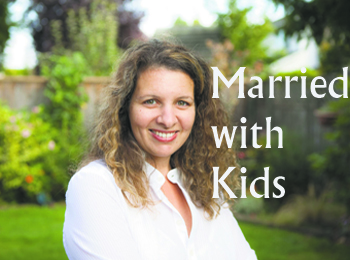In the beginning, we’d go often. On her birthday, on Mother’s Day, before Yom Kippur and, sometimes, just because. We’d huddle around her tombstone, three figures in a vast, lonely cemetery, remembering, with sorrow, the emptiness left behind after my mother’s passing.
But it wasn’t long before I started coming up with excuses, reasons that I couldn’t join the rest of the family graveside. The grave would bring me right back to her burial. And her burial, in turn, flooded my mind with horrible thoughts of what she’d endured in hospital in the three months before she took her final breath. The bustle of those sterile corridors, nurses bent over their paperwork. The sadness in my mother’s eyes as she became increasingly aware that medicine had nothing more to offer her. The pain she went through as she withered from a strong, beautiful woman to a corpse in a shroud. As the months ticked past after her death, I had to banish those memories, lock them away in the name of self-preservation. If I hadn’t, they’d haunt and torment me night after night.
It’s not how she’d want to be remembered, that much I knew. So I focused on the good memories, the ones that brought a smile to my face. I’d feel her hovering presence when I lit the Shabbat candles each Friday, when I’d say a special prayer for her. And when I was asked to join the family at her grave, I’d politely decline. It was a place I just didn’t want to go.
It’s been years, now, since I was last there. I hope fervently that the dead have no cognizance of their graveside visitors, for if they do, there’s likely a lot of underground disappointment in the cemetery. Guilt? I have plenty of it. Mine appears in the form of a recurring dream wherein my mother has been steadily declining in an institutional home for years, and I have completely forgotten to visit. When I finally remember that she’s there, I find a shell of a woman, barely alive. I sit at her bedside, wracked with sorrow at my lack of caring and concern for this woman at the centre of my life, and at all the years I have wasted by not visiting. My fear, in this dream, is that she will never know how deeply and fully I loved her. I wake up feeling awful, with a morning after chased by a black cloud of guilt and shame.
Yet at the very idea of standing by her tombstone, my mind reaches for excuses. Which part of her is really down there, I wonder. I don’t feel her spirit as I stand beside that flat stone, placing a pebble or a small bouquet from my garden at the inscription of her name. I’ve performed these actions and found they don’t help me feel close to her. If there’s no connection there, is there any point in going?
I’m not alone in feeling this way. I know this because the cemetery is almost always deserted, but for the maintenance staff, cutting the grass, clearing away the residues of pebbles and withered bouquets and preparing sites for the newly deceased. The cemetery is a place of tears and sorrow, not one where lives are celebrated. When I want to feel close to my mother, I hear her laughter in my head and remember the wonderful warmth of her frequent embraces. This brings her into my soul in a way that no forlorn moments in the cold, whistling wind of the cemetery can ever do.
